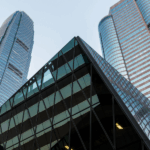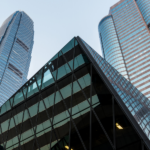Insect-based protein production is gaining momentum as European food systems emphasize sustainability. Finnish biotech firm Volare stands at this intersection, having recently concluded a €26 million funding round aimed at advancing their protein production with the Volare 01 plant. This facility leverages the innovative use of black soldier flies to repurpose food industry byproducts into valuable resources like protein, oil, and fertilizers without incineration.
A similar investment in 2021 signaled potential growth for Volare, demonstrating escalating interest in sustainable agricultural practices. Earlier discussions emphasized the environmental promise but faced skepticism regarding economic viability. Current developments show strides in energy-efficient processes, improving their market position and validating earlier expectations.
Why Choose Insects for Protein Production?
Volare’s groundbreaking technology harnesses the natural prowess of black soldier flies to transform food industry byproducts. These insects offer impressive conversion efficiency. Volare’s investment in a zero-waste, fossil-free production process capitalizes on this, promising enticing benefits for aquafeed, pet food, and poultry feed markets as compared to fishmeal or soy.
How Does Volare Aim to Minimize Impact?
The company aims to reduce resource expenditure, implementing technologies that cut energy use by 30%, and hygienization energy by 50%. This energy-efficient model not only reduces costs but also positions Volare as a circular economy leader. This choice highlights its goal to offer environmentally responsible protein solutions.
Backed by entities like Maki.vc, Finnvera, and others, Volare’s funding strategy mixes equity with public loans, ensuring diverse financial support for scaling up. The anticipated facility in Finland promises a considerable protein output, paralleling the yield from 200 million Baltic herrings, bridging the gap between demand and local production.
Volare’s Chief Science Officer, Tuure Parviainen, notes the new phase of large-scale production as pivotal.
“Now, we’re entering a new phase: scaling up to full industrial production. Our new facility will bring our proprietary, zero-waste, fossil-free process to life at scale, transforming food industry byproducts into high-quality protein and strengthening Europe’s food resilience.”
CEO Jarna Hyvönen reaffirms the innovation’s global significance.
“The result is a process with emissions significantly lower than conventional alternatives, up to 4–8 times lower than soy. This investment marks a major step toward full-scale operations and reinforces Volare’s position at the forefront of the global protein transition.”
Economic uptick and societal shifts towards lower emissions indicate insect protein as a future-favored substitute, aligning Volare’s mission. The planned operational efficiencies and potential to reduce emissions underscore their strategic market position. Navigating the global protein transition requires robust backing and innovation, with Volare making significant headway.










